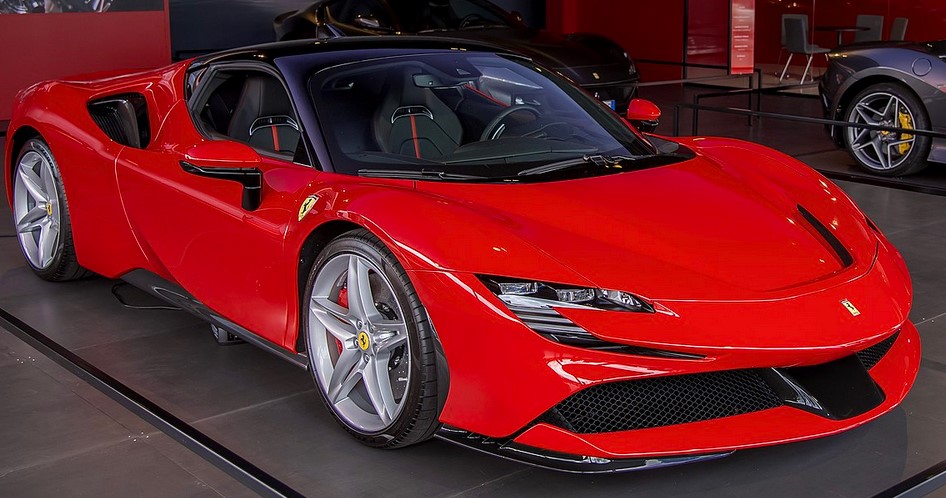A fancy Ferrari may not be everyone’s first choice of car because of the high prices, but car enthusiasts may be happy to hear the brand will stick with combustible engines and not give in to the pressures of the EV crowd.
Despite global efforts to phase out internal combustion engine technology, Ferrari has announced its plans to continue producing cars with such engines well into the late 2030s. The CEO of the Italian automaker stated that it would be “arrogant” to dictate to customers what they can purchase.
While the transition to electric cars presents a significant marketing challenge for Ferrari and other premium brands, the company is set to release its first electric supercar in 2025. The distinctive sound produced by traditional combustion engines has long been a part of Ferrari’s appeal, but electric vehicles are noticeably quieter. Nonetheless, Ferrari is confident that its forthcoming electric model will deliver a “unique driving experience,” as reported on the BBC.
This stance sets Ferrari apart from McLaren, a rival brand whose CEO recently expressed skepticism about the technology’s readiness for use in supercars due to the weight of batteries.
Last year, Ferrari outlined a three-pronged approach to develop new vehicles as part of its commitment to achieving carbon neutrality by 2030. While electric cars and hybrids will constitute an increasing portion of Ferrari’s lineup by the end of the decade, the company emphasized its intention to continue developing internal combustion engines, which it considers an essential aspect of its heritage.
Previously, this strategy seemed to have a limited lifespan, as several major markets planned to ban the sale of new cars with internal combustion engines by 2035. However, the European Union granted an exemption from its own ban for cars powered exclusively by synthetic “e-fuels” produced from renewable energy. While these fuels are expected to be costly, the loophole enables performance car manufacturers to continue selling engine-equipped models in one of the world’s largest markets.
Ferrari CEO Benedetto Vigna highlighted this decision as evidence of evolving technology and rejected the notion that it undermines the company’s environmental credentials. Vigna emphasized that the choice of engine—internal combustion, hybrid, or electric—should be left to the customer, and Ferrari’s role is to offer those options.
However, in countries such as the UK, no similar e-fuel loophole currently exists, raising the possibility that certain Ferrari models may be available in the EU but prohibited elsewhere. Vigna acknowledged the need to comply with regulations in all operating countries and explained that having three types of propulsion—internal combustion engines, hybrids, and electric vehicles—allows Ferrari to adapt to regulations worldwide.
Photo: Alexandre Prevot from Nancy, France, CC BY-SA 2.0 <https://creativecommons.org/licenses/by-sa/2.0>, via Wikimedia Commons

